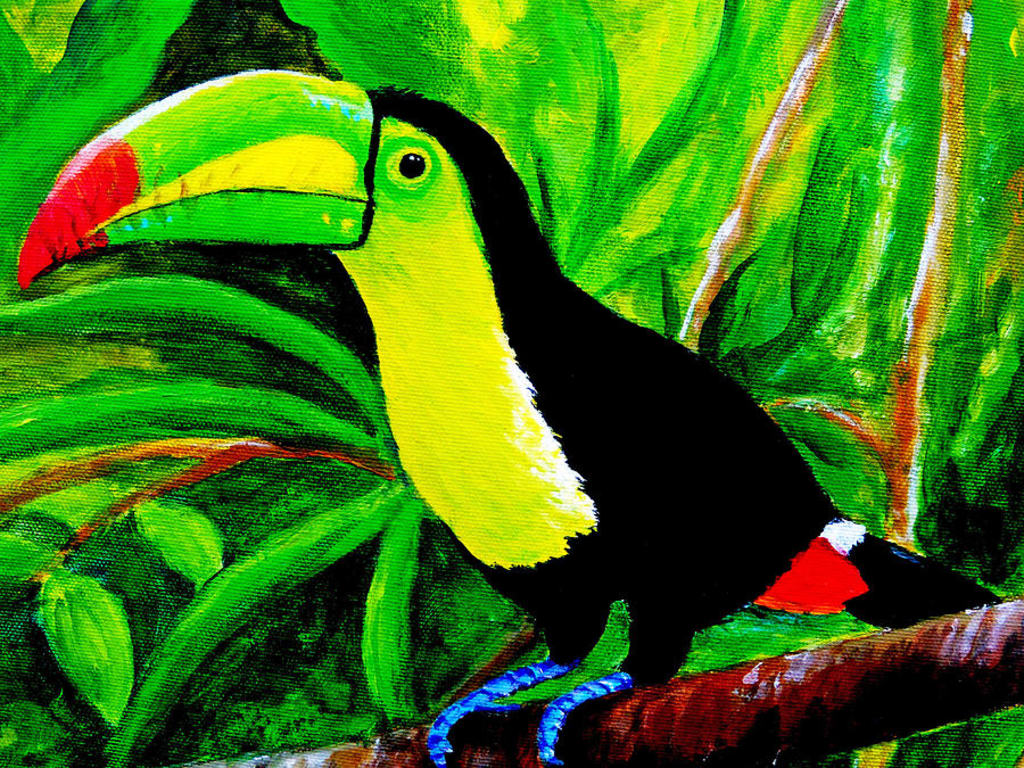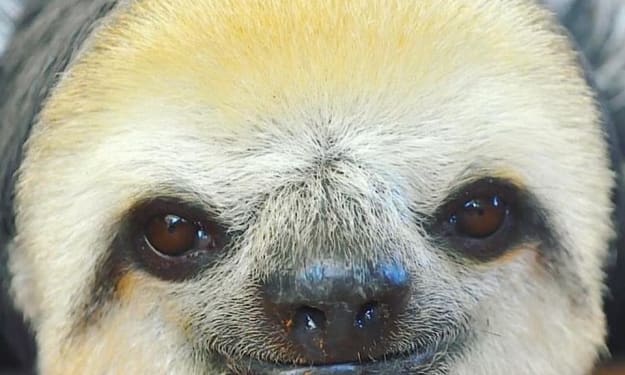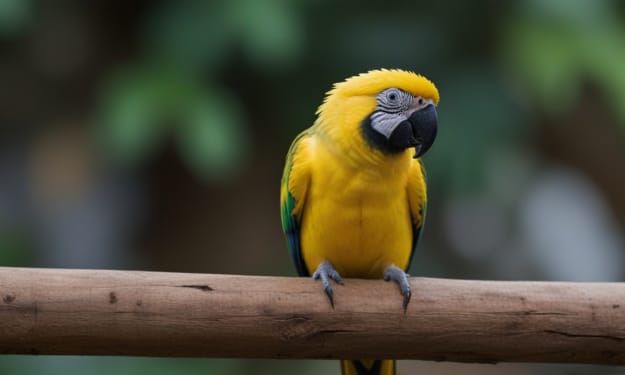The Toucans of Costa Rica
Perhaps One of the Most Beautiful Birds on the Entire Planet. .

Perhaps the most well-known tropical bird, the toucan, is a symbol of playfulness and intelligence known by children the world over. They are highlighted on many a cereal box and candy wrapper! From a marketing standpoint, the vibrant colors on the box immediately direct the child's eye and when the child starts pointing and yelling at the top of their lungs, usually a sale is made! It's as simple as that!
There are about 40 different species of toucans worldwide. 6 species live here in Costa Rica. They vary in size from about 7 inches to a little over two feet. They have short, thick necks. Toucans are distinguished by their large & colorful, yet lightweight bills. A toucan’s bill is sharp and has saw-like edges. The bill is used to squash the many kinds of fruits and berries they eat. They may also use the saw-like edges to tear off parts of larger fruits, reach deep into holes for bird eggs or even catch small lizards and insects. Their famous bill is of light, but stout, construction and is hollow except for a network of bony fibers that run crisscross through the top for strength and support. It is made of keratin, the same thing our hair and fingernails are made of. Having such a lightweight bill allows the toucan to perch on the thinnest (and highest) of branches to reach for the ripest of fruit.
Like their relatives, the woodpeckers, toucans make their homes in holes in trees. They usually live in pairs or travel in small flocks. The word, “toucan”, comes from the sound the bird makes. Their songs often resemble that of a croaking frog. Toucans combine their extensive vocal calls with tapping and clattering sounds from their bill. Many toucan species make barking, croaking and growling sounds. Mountain toucans make sounds like those of a donkey. Females generally have a higher voice than the males. They are indeed noisy and are so much fun to listen to!
Costa Rica's indigenous people regard the toucan as a sacred God. In their world, the birds are traditionally seen as conduits between the worlds of the living and of the spirits.
Toucans nest in tree cavities and usually lay two to four eggs, which both parents take turns incubating. Young toucans do not have a large bill at birth. The bill grows as they develop and does not become its full size for several months.
Toucans live for 15 to 20 years. They are found along the coasts and mountains, and thanks to efforts in conservation, they are being seen again in the Central Valley. I personally have seen many in the Santa Ana, San Mateo and Orotino areas, just west of San Jose.
Getting back to the bill of the toucan, it grows about one-third of its body length. This oversized appendage has puzzled scientists from centuries. Charles Darwin surmised that the large bill was used simply to attract a mate. Other theories exploring the uses are. . for peeling fruit, making their nests and for warning and scaring off predators.
Recently, researchers from both Canada and Brazil seem to have come up with another theory. The toucan uses its enormous beak to stay cool. Researchers have used infrared cameras showing the bird exchanging heat from its body into its bill, helping it to regulate its body temperature. The scientists found that as the surroundings got warmer, the toucan’s bill would rapidly heat up, effectively acting as a radiator to draw heat away from the bird’s body and allowing it to stay cool. Conversely, in cooler temperatures, a small amount of heat would radiate from the bill, letting the bird conserve its warmth. This exchange of heat was particularly evident at night. Around sunset, the birds would, in a matter of minutes, pump out heat from their beaks, lowering their body temperature as they slept. The birds’ bills have a network of blood vessels that can increase or restrict the flow of blood. By altering blood flow to the bill’s surface, toucans can conserve body heat when it is cold or cope with heat stress by increasing blood flow. Essentially, the large surface area of the bill, and the fact it is not insulated, means that the blood flowing through is able to release heat into the bill, thus cooling the bird. This blood-derived heat in the bill is then dissipated into the air. It serves as a wonderful, and efficient, natural radiator!
Other animals also use parts of their bodies to regulate temperature. For example, elephants and rabbits radiate heat from their ears to cool down. Birds do not sweat, so they must use other mechanisms to offset elevated temperatures.
Bird watchers from all over the world come to Costa Rica to see these 6 species. What a treat it is. They snap lots of photos and certainly have many stories to tell to their friends and family members when they return from their birding tours here.
Whatever your reason is for visiting Costa Rica, I hope you do have an opportunity to see this beautiful bird. That alone is worth the trip!
You're invited to visit our websites at www.costaricagoodnewsreport.com & www.costaricaimmigrationandmovingexperts.com
Also, please enjoy our over 1,700 episodes of our "Costa Rica Pura Vida Lifestyle Podcast Series". We are found on all major podcast venues, including iHeartRADIO, Spotify, Apple Podcasts, Google Podcasts, Radio FM, Anchor and many more. Here's our link: www.anchor.fm/costa-rica-pura-vida
About the Creator
William "Skip" Licht
Costa Rica is a magical place. Since November, 2002, when I first visited this country, I have been in love with the people, the culture, its biodiversity, the food. . everything about it makes me happy! Now I share my excitement with you!






Comments
There are no comments for this story
Be the first to respond and start the conversation.